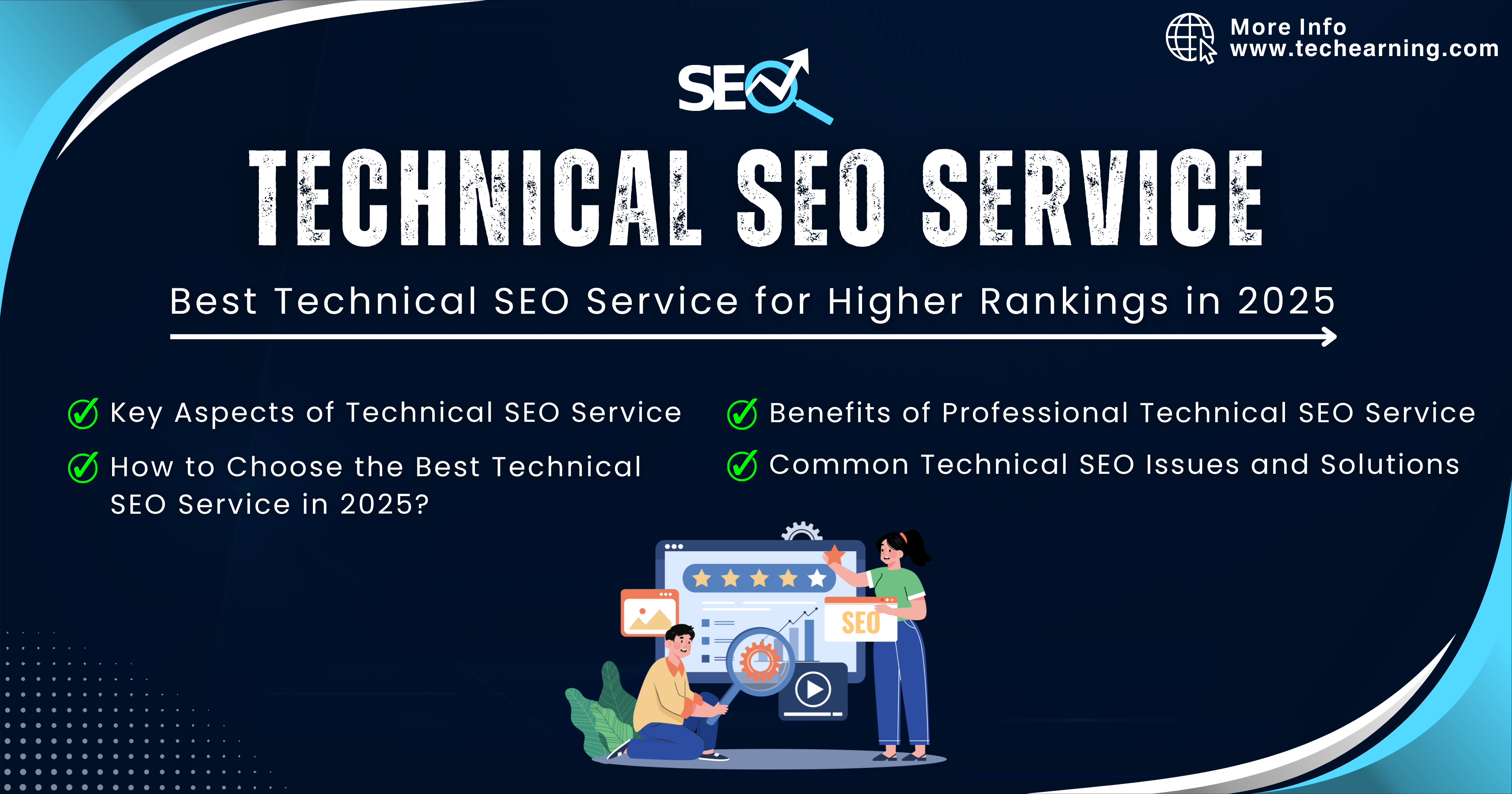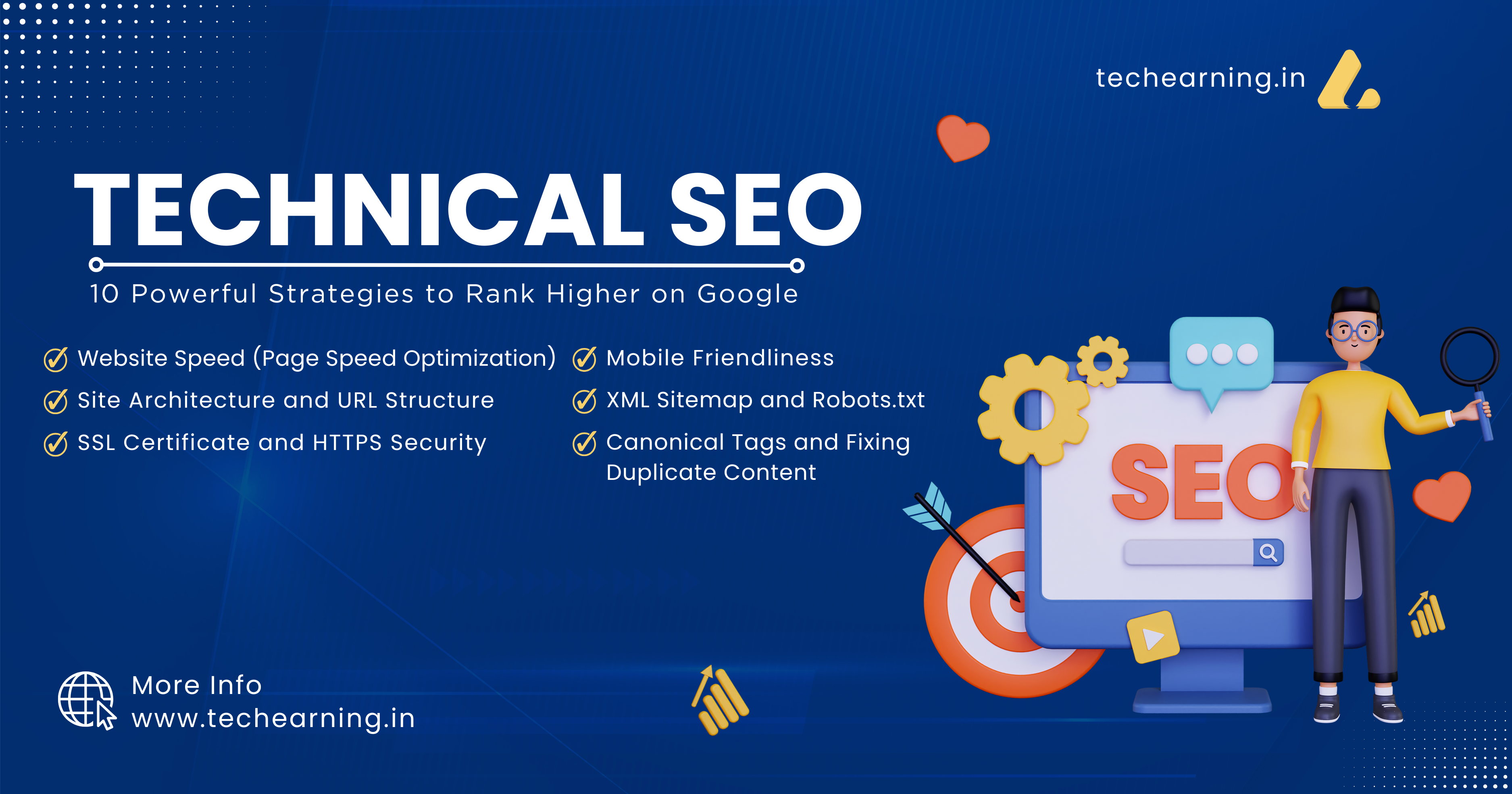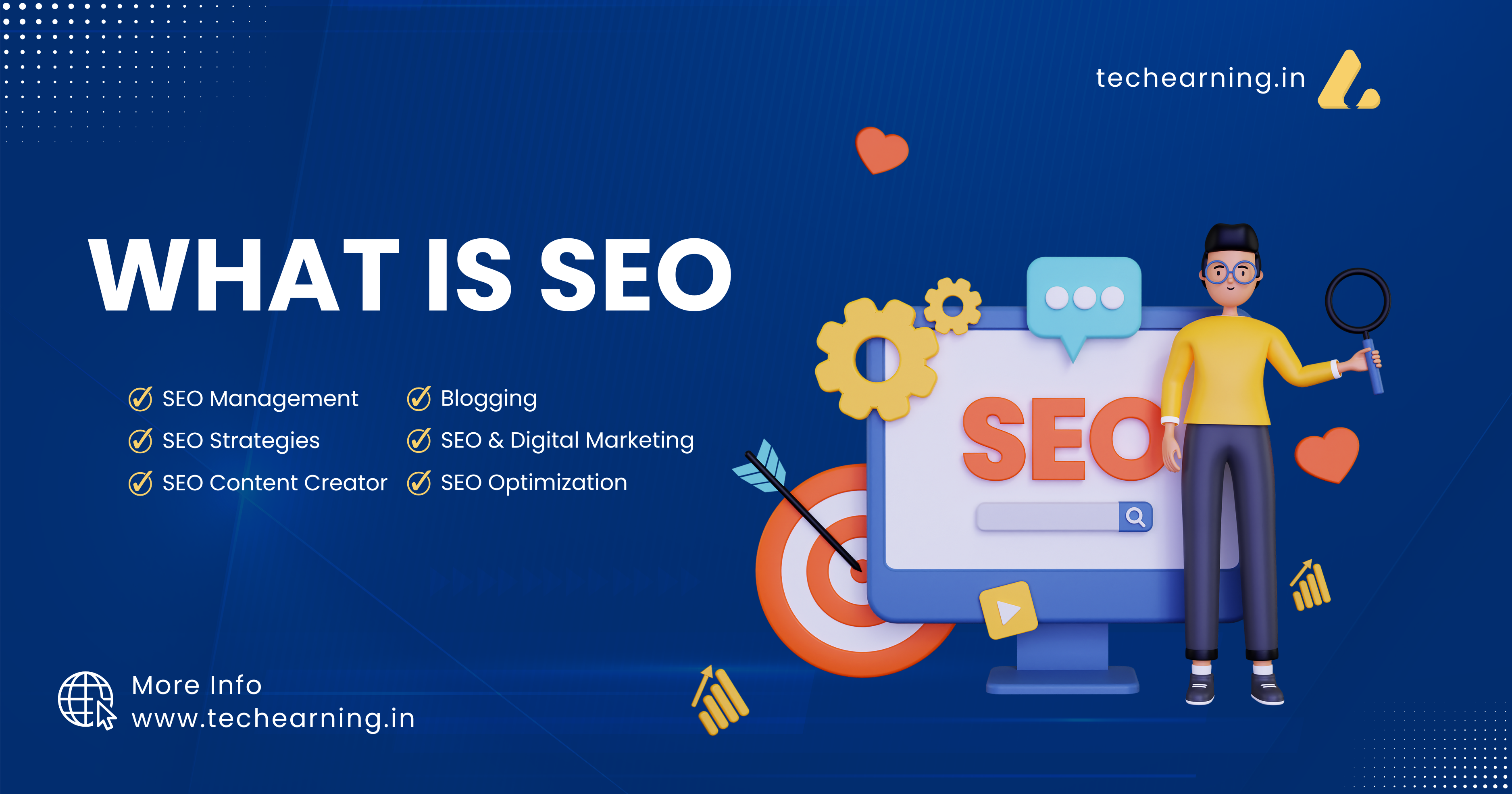SEO
Best Technical SEO Service for Higher Rankings in 2025
What is Technical SEO Service & Why It’s Important ? In the world of digital marketing, technical SEO service plays a crucial role in improving your website’s search engine ranking. It ensures that search engines can efficiently crawl, index, and rank your site without any technical barriers. Without proper technical SEO, even high-quality content might not rank well. Key Aspects of Technical SEO Service Benefits of Professional Technical SEO Service How to Choose the Best Technical SEO Service in 2025? When selecting a technical SEO service, consider the following factors: Common Technical SEO Issues and Solutions Final Thoughts Investing in a professional technical SEO service is essential for improving your website’s performance and rankings. If you want to stay ahead in 2025, make sure your site is technically optimized. For expert technical SEO service, visit our Home page and get started today !
Technical SEO: The Ultimate Way to Boost Your Website Ranking (10 Proven Strategies)
What is Technical SEO and Why is it Important? Technical SEO focuses on optimizing the backend of your website so that search engines can easily crawl and index it. Even if your content is great, your site won’t rank well if it has technical flaws. It plays a crucial role in website speed, mobile-friendliness, site architecture, and security, ensuring a seamless user experience and better ranking in search results. Without proper Technical SEO, even high-quality content may remain unnoticed by search engines. A well-structured technical foundation helps search engines understand your website better, leading to higher visibility, improved indexing, and better performance in search rankings. Technical SEO is a core component of search engine optimization (SEO), ensuring that your website meets the necessary technical requirements for higher search engine rankings. Key Elements of Technical SEO Website Speed (Page Speed Optimization) According to Google’s Core Web Vitals update, site speed is a major ranking factor. A slow website can increase bounce rates and negatively impact user experience. To improve website speed: Mobile Friendliness Over 70% of users access the internet via mobile. Google prioritizes mobile-first indexing, meaning your website’s mobile version is considered first for ranking. To optimize for mobile: Site Architecture and URL Structure A well-structured website and clean URLs enhance SEO. Follow these best practices: SSL Certificate and HTTPS Security Google gives priority to secure websites. If your website is still on HTTP, it may be marked as “Not Secure.” To ensure website security: XML Sitemap and Robots.txt Canonical Tags and Fixing Duplicate Content Duplicate content can confuse search engines and dilute ranking power. Use Canonical Tags to tell search engines which page is the original and should be indexed. This prevents unintentional duplicate content penalties. Common Technical SEO Mistakes and Their Solutions Slow Website Loading Speed Solution: Upgrade web hosting, use caching plugins, and minimize CSS/JS files. Optimize images and enable lazy loading for better performance. Broken Links Solution: Regularly check for broken links using a link checker tool and fix them to avoid poor user experience and crawl issues. Incorrect Redirects Solution: Implement 301 redirects correctly for permanent URL changes and avoid unnecessary 302 redirects that might confuse search engines. Noindex Meta Tag Errors Solution: Ensure critical pages do not have the noindex tag, which can prevent them from ranking in search engines. Always verify settings in robots.txt and meta tags. Poor Internal Linking Solution: Improve internal linking to connect relevant pages and distribute link equity effectively. 10 Proven Strategies to Improve Technical SEO (2025 Edition) Conclusion Technical SEO is an essential part of digital marketing. Implementing the right Technical SEO strategies can significantly improve your website’s ranking, user experience, and search engine visibility. A well-optimized website ensures better crawling and indexing by search engines, leading to increased organic traffic. By focusing on website speed, mobile-friendliness, structured data, and security, you can build a strong technical foundation for long-term SEO success. Regular audits and updates are key to maintaining optimal performance. If you need any help with Technical SEO or Digital Marketing, visit our Home Page to explore our services!
Off-Page SEO: 10 Powerful Strategies to Rank Higher on Google
If you want to improve your website ranking, focusing only on On-Page SEO is not enough. Off-Page SEO is equally important. Off-Page SEO refers to activities performed outside your website to boost its authority and trust in Google’s eyes. Today, we will discuss 10 powerful Off-Page SEO techniques that can help your website rank higher on Google. What is Off-Page SEO? Off-Page SEO is a part of search engine optimization (SEO) that focuses on external techniques to enhance a website’s authority and credibility. Backlinks, social signals, and brand mentions are key factors in this strategy. When used correctly, Off-Page SEO can significantly improve your website’s search engine ranking. It is a long-term process that requires consistent efforts to build a strong online presence 10 Best Off-Page SEO Techniques Build High-Quality Backlinks Backlinks are the most important factor in Link Building. You should aim to acquire links from high DA (Domain Authority) and PA (Page Authority) websites. Guest posting, broken link building, and competitor backlink analysis can help you gain quality backlinks. The more high-quality backlinks you have, the better your website’s authority. Leverage Social Media Marketing Promote your website on social media platforms like Facebook, Twitter, LinkedIn, and Instagram. This helps drive traffic and indirectly strengthens Off-Page SEO. Engaging with your audience on social media builds credibility and brand awareness, which can lead to better rankings. Get Backlinks through Guest Posting Guest blogging is a powerful Off-Page SEO strategy. Publishing content on high-authority blogs and getting backlinks from them can boost your website’s credibility. Choose relevant websites in your niche for guest posting to maximize the impact. Reach Out to Influencers To increase your website’s authority, collaborate with industry influencers and try to get backlinks from them. Influencer marketing helps in brand exposure and increases your chances of getting high-quality backlinks. Engage in Forum Submissions Actively participate in forums like Quora, Reddit, and niche-specific communities. Share relevant links to drive referral traffic. Answering industry-related questions and providing valuable insights can establish you as an authority in your niche. Optimize for Local SEO & Business Listings If you run a local business, list it on platforms like Google My Business, Justdial, and Sulekha. This enhances local SEO and improves website rankings. Consistently updating your listings with accurate information helps build credibility with search engines. Use Social Bookmarking Sites Share your website content on platforms like Pinterest, Mix, and Digg. This method is highly beneficial for Off-Page SEO. Bookmarking helps index your website faster and increases visibility. Apply the Broken Link Building Strategy Find broken links on other websites and suggest your relevant content as a replacement. This is a great way to earn high-quality backlinks. Reaching out to webmasters and providing solutions can result in valuable link placements. Utilize Press Releases & Brand Mentions Publishing a press release on news websites can provide valuable authority backlinks, strengthening your Off-Page SEO. Brand mentions on reputable websites, even without direct backlinks, contribute to better search engine trust and credibility. Use Video Marketing & Image Sharing Upload informative videos on YouTube and Vimeo related to your website. Also, share infographics and high-quality images on platforms like Pinterest and Instagram. Videos and images enhance engagement, and search engines consider them valuable content formats for ranking. Impact of Off-Page SEO on Website Ranking Proper implementation of Off-Page SEO strategies leads to an organic improvement in website ranking. According to Google’s latest algorithm updates, simply building backlinks is not enough; acquiring high-quality and relevant backlinks is crucial. Off-Page SEO Benefits: Conclusion If you want to rank your website higher on Google, you must implement Off-Page SEO techniques effectively. Focus on building high-quality backlinks, leveraging social media, guest blogging, and gaining brand mentions from authoritative websites. These strategies require continuous effort and patience, but the results are worth it. If you need any help with Off-Page SEO or Digital Marketing, visit our Home Page to explore our services!
What is SEO? A Complete Guide to Search Engine Optimization
Introduction Search Engine Optimization (SEO) is the process of optimizing a website to improve its visibility on search engine results pages (SERPs). With proper techniques, businesses and individuals can attract more organic traffic, improve their rankings, and increase their online presence. In this article, we will explore what Search engine optimization is, its importance, and key strategies to enhance website performance. Understanding Search Engine Optimization Search engine optimization is a digital marketing strategy that focuses on improving website rankings on platforms like Google, Bing, and Yahoo. This process involves several techniques, including keyword research, on-page and off-page enhancements, and technical improvements to ensure that a website is easily discoverable by search engines and users. Why Search Optimization Matters Effective optimization is crucial for any website because: Categories of Website Optimization Optimization can be categorized into three main types: On-Page Enhancements On-page strategies focus on improving individual web pages for better rankings. This includes: Off-Page Authority Building Off-page methods involve external efforts to enhance website authority and rankings. Key techniques include: Technical Performance Optimization Technical improvements focus on the backend structure of a website to help search engines crawl and index it effectively. Key aspects include: How to Improve Website Rankings To boost search visibility, follow these essential practices: Conduct Keyword Research Keyword research is the foundation of an effective strategy. Use tools like Google Keyword Planner, Ahrefs, and SEMrush to find high-traffic and low-competition keywords. Optimize Content for Better Visibility Improve Meta Tags Ensure the following meta tags are optimized: Focus on Link Building Backlinks are essential for search rankings. To build quality links: Enhance User Experience (UX) Monitor Performance and Analytics Track optimization progress using tools like Google Analytics, Google Search Console, and Rank Math SEO. Regular monitoring helps refine strategies and fix issues. Common Mistakes to Avoid Advanced Strategies for 2025 Conclusion Search engine optimization is a powerful digital marketing technique that helps websites rank higher and attract more organic traffic. By following the best practices, businesses and individuals can achieve long-term success in search engine rankings. Implementing advanced strategies can give you a competitive edge in 2025. Start optimizing your website today for better visibility and growth. For more insights on SEO and digital marketing services, visit our home page and explore how we can help grow your business!
10 Best On-Page SEO Strategies to Boost Your Website Ranking
What is On-Page SEO? On-Page SEO is an essential technique that helps improve a website’s search engine ranking. It includes all optimization methods applied directly to your web pages, such as content optimization, HTML source code, images, internal linking, and mobile-friendliness. By implementing the right On-Page SEO strategies, you can improve your webpage’s ranking on Google and other search engines. On-Page SEO is crucial because it tells search engines what your page is about and helps it rank higher in search results. Unlike Off-Page SEO, which focuses on external factors like backlinks and social media signals, On-Page SEO gives you complete control over optimizations within your website. Why is On-Page SEO Important? 10 Best On-Page SEO Strategies Optimize Your Title Tag The title tag is one of the most important SEO factors. Your title should include a number and a positive word, like “10 Best On-Page SEO Strategies to Boost Your Website Ranking,” to increase CTR (Click Through Rate). The title should be under 60 characters to ensure it is fully displayed in search results. Write an SEO-Friendly Meta Description Your meta description should be concise yet impactful, including your focus keyword “On-Page SEO.” It should be between 150-160 characters and entice users to click on your page. Use Proper Heading Tags (H1, H2, H3) Structure your content using H1, H2, and H3 tags properly. Your H1 tag should include the primary keyword “On-Page SEO.” Subheadings help break down the content into readable sections, improving user experience. Focus on Keyword Placement Optimize URL Structure SEO-friendly URLs should be short and keyword-rich. Example: ✅ example.com/on-page-seo-tips ❌ example.com/p=12345 Improve Content Readability Use Internal and External Links Optimize Images with Alt Text Adding alt text helps Google understand your images. Example: ✅ <img src=”on-page-seo.jpg” alt=”On-Page SEO Strategies”> Additionally, compressing images without losing quality improves page load speed, which is crucial for SEO. Improve Website Speed Make Your Website Mobile-Friendly Google prioritizes mobile-first indexing, so your website must be 100% mobile-friendly. Ensure: Additional On-Page SEO Factors Implement Schema Markup Schema markup helps search engines understand your content better, increasing the chances of appearing in featured snippets. Optimize for Voice Search With the rise of voice search, optimizing for conversational keywords and long-tail queries is essential. Improve Dwell Time and Reduce Bounce Rate Engaging content, videos, and interactive elements encourage visitors to stay longer on your page. Secure Your Website with HTTPS A secure website with an SSL certificate improves trust and enhances rankings. Update Content Regularly Outdated content affects rankings. Regularly updating your pages with fresh content ensures continued visibility in search engines. Final Thoughts On-Page SEO is a crucial part of your website’s success. By following these 10+ strategies, your site’s organic traffic and Google ranking will significantly improve. Keep updating your On-Page SEO techniques regularly according to Google’s algorithm updates. A well-optimized website ensures better user experience, increased credibility, and long-term SEO success. Implement these strategies today and watch your website grow in search rankings! FAQs (Frequently Asked Questions) Q1. What is the difference between On-Page SEO and Off-Page SEO?Ans: On-Page SEO focuses on techniques within your website, while Off-Page SEO includes link-building, social media promotion, etc. Q2. Can On-Page SEO alone improve rankings?Ans: Yes, but Off-Page SEO and Technical SEO should also be considered. Q3. Does keyword stuffing improve ranking?Ans: No, keyword stuffing negatively affects your website and can lead to Google penalties. Q4. How often should I update my On-Page SEO strategies?Ans: Regularly check for Google updates and optimize your content accordingly, at least once every few months. For more insights on On-Page SEO and digital marketing services, visit our home page and explore how we can help grow your business!




